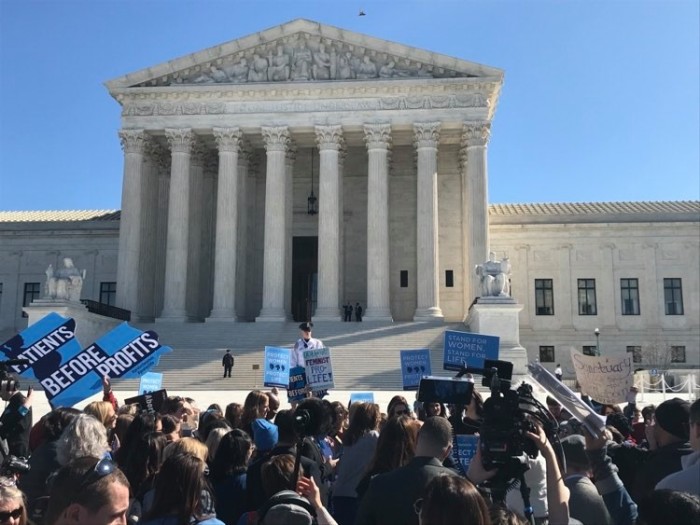Supreme Court rejects pro-life group’s challenge to abortion clinic ‘buffer zone’

The United States Supreme Court has rejected a request by a pro-life group to hear a challenge to a Pennsylvania city law that creates a “buffer zone” around abortion clinic entrances.
In an order released Monday, the high court denied without explanation a petition for a writ of certiorari in the case of Nikki Bruni et al v. City of Pittsburgh, Pennsylvania et al.
Supreme Court Justice Clarence Thomas, known for his past legal opinions denouncing abortion, nevertheless respected the decision of the court to not take up the appeal.
“The city of Pittsburgh, like many jurisdictions, has created ‘buffer zones’ around abortion clinics. These zones often impose serious limits on free speech. Many even prohibit certain one-on-one conversations,” wrote Thomas, as part of the order.
“In 2000, we upheld one such law, determining that it survived under the First Amendment because it satisfied intermediate scrutiny. Hill v. Colorado, 530 U. S. 703 (2000).”
Thomas went on to explained that he agreed with the denial of an appeal because “it involves unclear, preliminary questions about the proper interpretation of state law.”
“But the Court should take up this issue in an appropriate case to resolve the glaring tension in our precedents,” he added.
In 2005, Pittsburgh adopted an ordinance that prohibited demonstrations within 15 feet of any entrance to a medical facility or hospital, including abortion clinics among entities protected.
Pro-life activists Nikki Bruni, Cynthia Rinaldi, Kathleen Laslow, Julie Cosentino, and Patrick Malley sued the city over the buffer zone ordinance.
At issue was the claim that the buffer zone interfered with their efforts to dissuade women from having abortions via “sidewalk counseling” and other means.
While a three-judge panel of the U.S. Court of Appeals for the Third Circuit upheld the ordinance in October 2019, they also ruled that it did not apply to pro-life sidewalk counselors.
“No doubt, if the Ordinance by its terms did prohibit one-on-one conversations about abortion but not about other subjects within the zone, it would be highly problematic,” wrote Judge Cheryl Ann Krause for the panel.
“The text of the Ordinance says nothing about leafletting or peaceful one-on-one conversations, let alone on a particular topic or for a particular purpose.”
In March of last year, Alliance Defending Freedom, which was helping to represent the activists, asked the Supreme Court to review the case.
“The government can’t silence speakers just because it doesn’t like what they have to say, and as Pittsburgh’s mayor made clear, the ban’s purpose was to prevent women seeking abortions from hearing messages of hope, encouragement, and true choice,” said ADF Vice President of Appellate Advocacy John Bursch in a statement at the time.
“The city can still prosecute pro-life sidewalk counselors and censor pro-life advocates even after the 3rd Circuit’s ruling, and until the Supreme Court weighs in, the threat remains.”




























